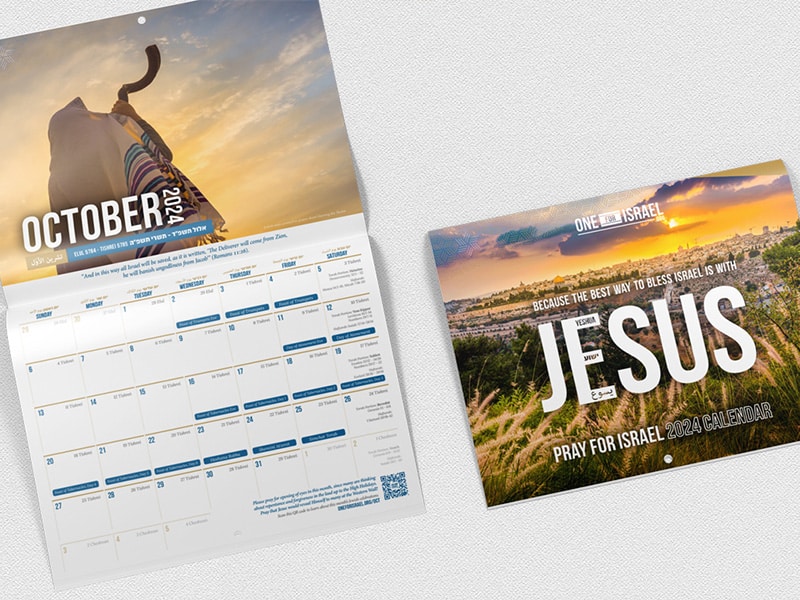“If you are not careful to observe all the words of this law which are written in this book, to fear this honored and awesome name, the LORD your God, then the LORD will bring extraordinary plagues on you and your descendants, even severe and lasting plagues, and miserable and chronic sicknesses. He will bring back on you all the diseases of Egypt of which you were afraid, and they will cling to you. Also every sickness and every plague which, not written in the book of this law, the LORD will bring on you until you are destroyed” (Deut 28:58-61).
One of the key epicenters in the debate about the identity of Israel’s true Messiah is Isaiah 53. Out of a desire to distance this passage from the New Testament’s interpretation, Rashi (a famous Medieval Jewish commentator) argues that the “servant of the LORD” in Isaiah 52:13 is the righteous remnant of Israel. Rashi further argues on the basis of Isaiah 52:15 (i.e., the response of the nations to the servant) that Isaiah 53:1ff is not the confession of Israel, but the confession of the nations (see Isa 52:15) when they finally realize in the last days that Israel is God’s servant who had vicariously suffered rejection, abuse, and death to atone for the sins of the world.
As surprising as it may be, Deuteronomy 28:58-61 offers strong evidence against Rashi’s interpretation and provides strong support for the Messianic interpretation (i.e., the Messiah suffers for the sins of his people). The pairing of the words “sickness” (“choli”) and “plague” (i.e., wounds; “maccah”) is quite rare in the Hebrew Bible, and outside of Deuteronomy 28 is specifically associated with the curses enumerated in Deuteronomy 28 for Israel’s disobedience to God’s law (see Deut 28:59, 61; Isa 1:5-6; 53:3-4; Jer 6:7; 10:19).
When the book of Isaiah opens with a description of Israel being full of “sickness” (Isa 1:5), and covered in fresh “wounds” (maccah) and “bruises” (“chabura”) (Isa 1:6), the attentive reader immediately recognizes the allusion to the curses of Deuteronomy 28. The book of Isaiah opens with a description of Israel justly suffering the consequences of their disobedience to God’s law.
Isaiah 53 uses this same cluster of rare words to describe the suffering of the innocent “servant of the LORD.” In Isaiah 53:4-5, the innocent servant receives the “sickness” (“choli”), “beatings/wounds” (“mucceh”) and “bruises” (“chabura”) which ought to have been the punishment of those who are confessing their sins (Isa 53:4-5). The repetition of these specific words (“wounds, sickness”) means the confessors are specifically acknowledging their own personal failure to keep the Sinai Covenant (see Deut 28:59, 61). And they are also acknowledging the servant’s vicarious suffering on their behalf: “Surely our griefs He Himself bore, and our sorrows He carried; yet we ourselves esteemed Him stricken, smitten of God, and afflicted. But He was pierced through for our transgressions, He was crushed for our iniquities; the chastening for our well-being fell upon Him, and by His scourging we are healed” (Isa 53:4-5).
Because the words of the confession specifically highlight the curses of disobedience to the law, those who are confessing their sins (Isaiah 53) simply cannot be the Gentile nations. For only the people of Israel would suffer those specific curses for violating the Sinai covenant. Isaiah 53, therefore, has to be the confession of the people of Israel, wherein they confess the innocent servant of the LORD has taken upon himself the curses of the law on their behalf (see Isa 1:4-6).
And this description of the Messiah in Isaiah 53 is a remarkably Pauline concept although it happens to appear seven hundred years before Paul was born! “Christ redeemed us from the curse of the Law, having become a curse for us — for it is written, ‘CURSED IS EVERYONE WHO HANGS ON A TREE'” (Gal 3:13).














